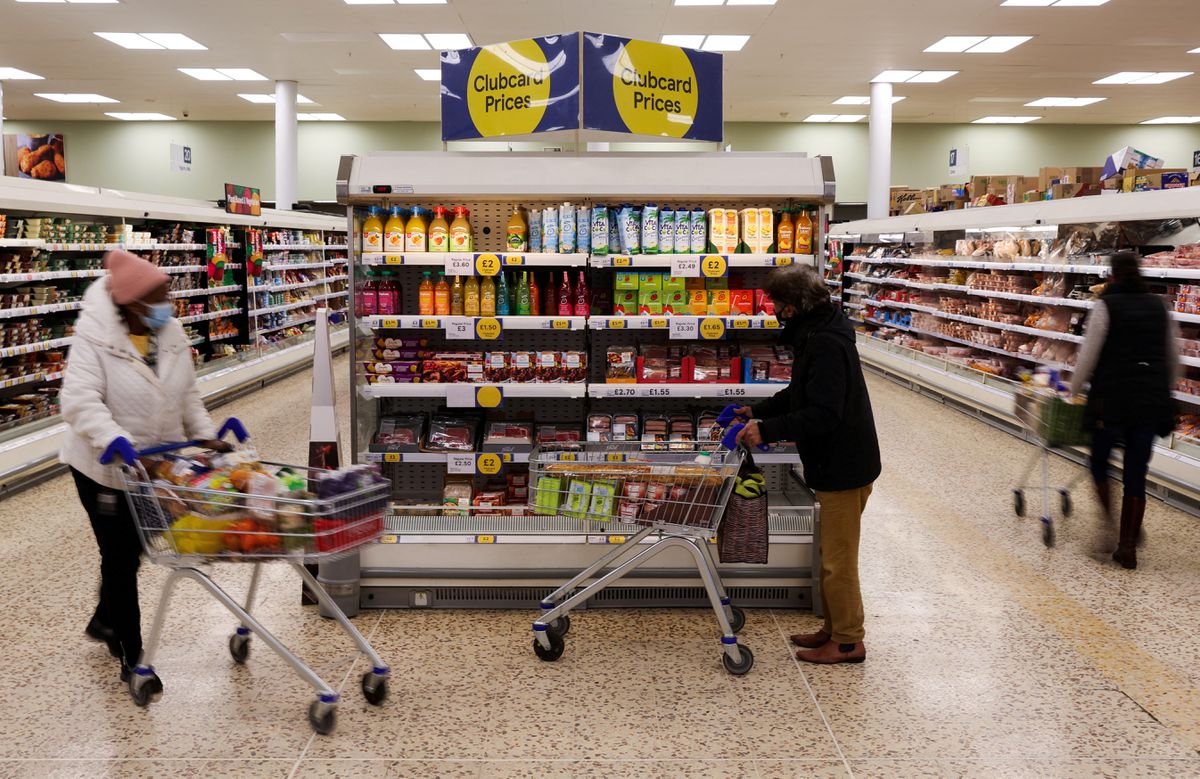232
British shoppers are increasingly choosing own-label products to help counter surging inflation, according to research by NielsenIQ that showed overall supermarket spending down on a year ago when COVID lockdown measures were in place.
Sales of branded grocery products fell by 5.1 per cent in the four weeks to March 26, while sales of own-label, or private-label, products created for chain stores were down 1.9 per cent, the market research company said.
The share of sales for own-label products rose from 52.4 per cent to 53.2 per cent compared to a year ago, it said.
“As we leave behind the pandemic, it’s clear that shoppers are re-evaluating what they spend,” said Mike Watkins, NielsenIQ UK head of retailer and business insight.
“Whilst some of the changes in grocery spend will be due to consumers simply having a different basket mix compared with last year, our data also shows that consumers are now increasingly shopping for private-label products as part of their coping strategy.”
Sales of private-label products in the ambient or packaged grocery category increased by 3.3 per cent; a significant change in a category where brands dominate, with a 61 per cent share of total sales, it said.
UK inflation hit a 30-year high of 6.2 per cent in February and is heading for 9 per cent later this year, according to the government’s budget watchdog, which predicted living standards in 2022 would fall by the most since at least the 1950s.
Overall grocery spending fell 4.1 per cent year-on-year in the period, the steepest decline so far recorded in 2022, NielsenIQ said on Tuesday.
However, the period was the final comparison against extensive lockdown measures, indicating a potential return to growth post Easter and into the spring.
The strongest performing retailers were M&S (MKS.L), with sales up 9.4 per cent, and German discounters Lidl and Aldi, up 8.6 per cent and 5.6 per cent respectively. The three were the only retailers to gain market share, it said.
REUTERS


